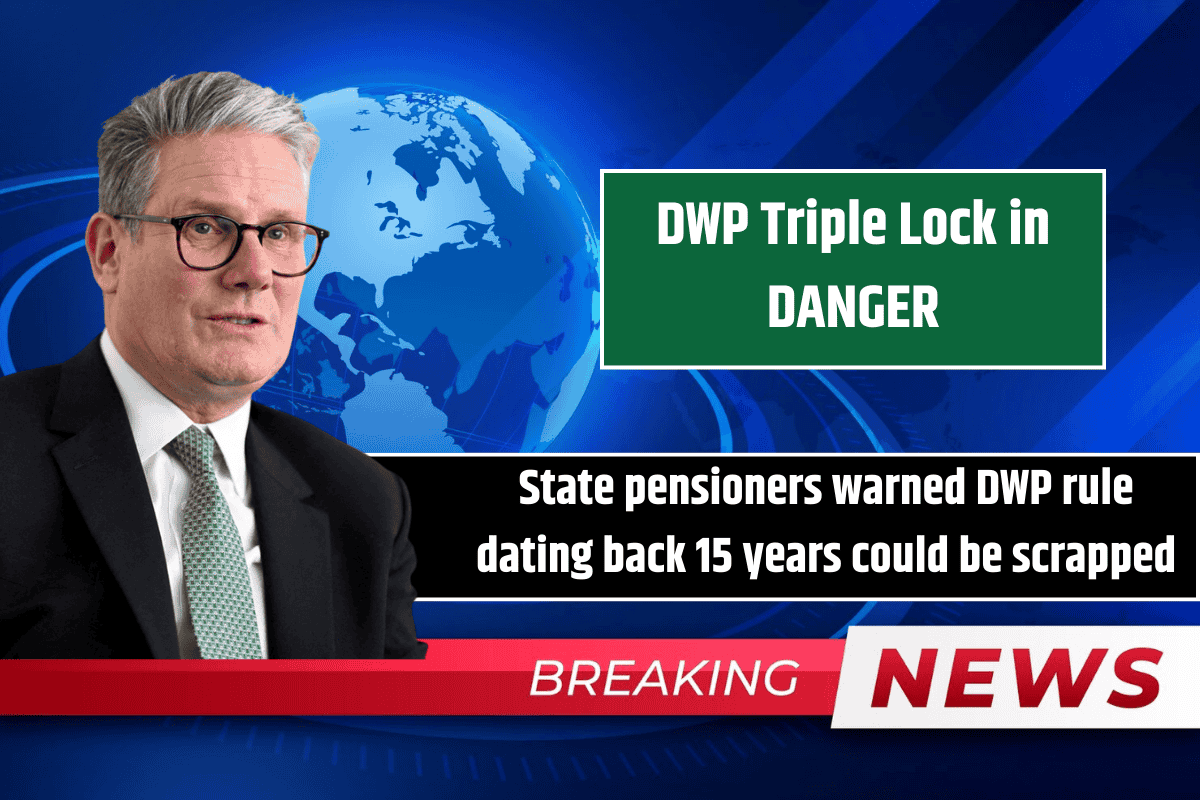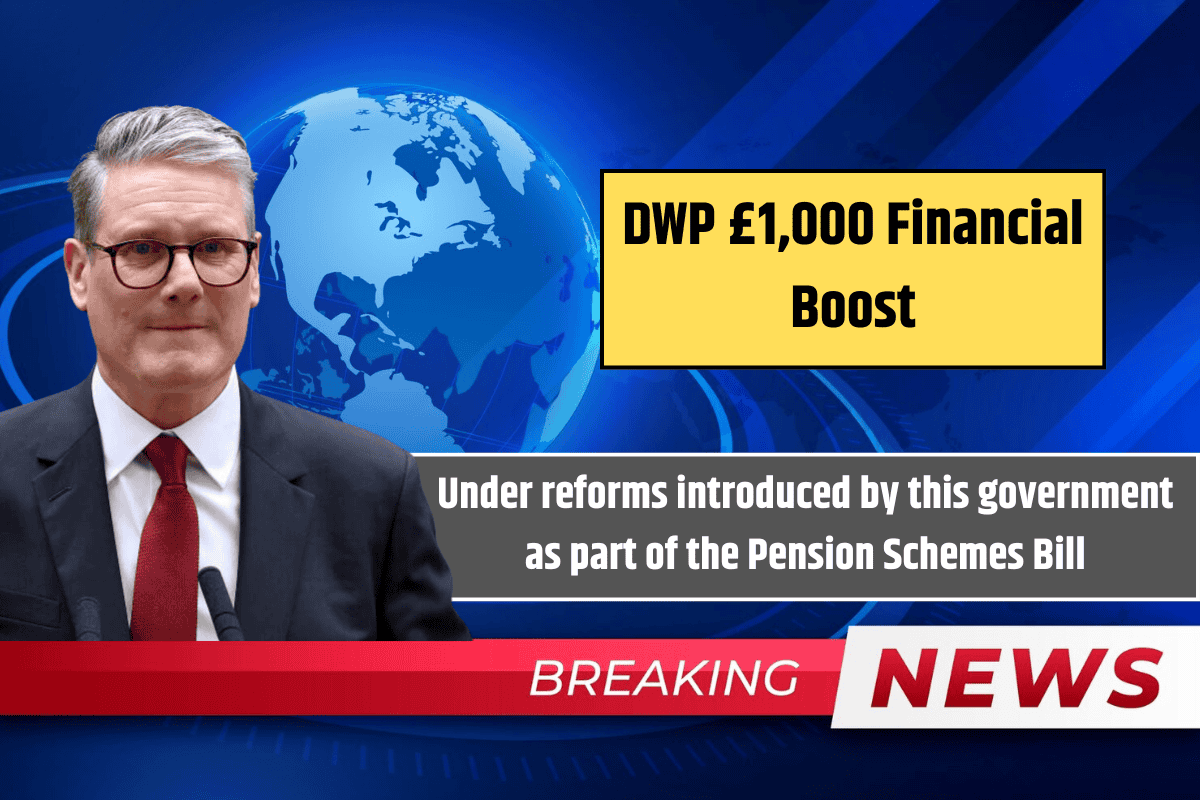State pensioners in the UK have been warned that a Department for Work and Pensions (DWP) rule that has been in place for 15 years could be at risk. The rule in question is the triple lock on state pensions, which guarantees an annual increase based on the highest of inflation, wage growth, or a 2.5% floor. While the government has committed to maintaining this system, some experts and politicians are raising concerns about its future, especially as the country faces increasing financial pressures.
What Is the State Pension Triple Lock?
The triple lock system, introduced in 2011, ensures that the state pension rises each year by the highest of three measures:
- Inflation as measured by the Consumer Prices Index (CPI)
- Wage rises
- A 2.5% floor to ensure pensions rise even if inflation and wages are lower.
This system was designed to ensure that state pensions keep pace with the cost of living, helping to protect pensioners against inflation and wage stagnation. However, as the UK government faces growing pressure to cut public spending, there are concerns that this rule could be scrapped or altered in the future.
Labour Party’s Stance on the Triple Lock
The Labour Party has promised to reduce Britain’s overall benefits bill, which has raised questions about the future of the triple lock. Analysts have warned that the triple lock could be one of the first targets of any cuts. Torsten Bell, Labour’s new Pensions Minister, has previously criticized the triple lock, calling it a “silly system” and highlighting its reliance on unpredictable measures like earnings growth and inflation.
Bell has also suggested the need for pension tax reform, which could result in less generous relief for some savers while offering more for others. The Labour government’s approach to pensions will likely continue to evolve as they address the ongoing economic challenges.
Concerns Over the Future of the Triple Lock
Despite Labour’s stance, some within the party have shown commitment to the triple lock system. Lady Sherlock, speaking in Westminster, emphasized that maintaining the triple lock would increase spending on state pensions by £31 billion over the course of the parliament. By the end of the parliamentary term, the state pension could have risen by up to £1,900.
However, the appointment of Torsten Bell as Pensions Minister has raised concerns among pensioners and MPs about the long-term stability of the triple lock. Lord Dodds of Duncairn, former deputy leader of the DUP, questioned the minister on the future of the system, given Bell’s past criticism and the opposition’s interest in exploring means testing for government support.
Growing Concerns Among Pensioners
The debate over the future of the triple lock is a sensitive issue, especially since many pensioners already feel the effects of cuts to other benefits, such as the winter fuel allowance, which was removed unexpectedly. The UK’s state pension is one of the lowest among developed economies relative to average earnings, making any potential cuts to the triple lock a particularly contentious issue.
Pensioners are concerned that changes to the triple lock could further reduce their already limited financial security. As Lord Dodds pointed out, many recipients of the state pension are worried that recent political developments, such as the appointment of a Pensions Minister who has spoken against the triple lock, indicate that the government may be moving towards a system that would be less generous to them.
Will the Triple Lock Remain?
The future of the state pension triple lock remains uncertain. While some members of the Labour Party are committed to preserving it for the current parliamentary term, there is significant pressure to reduce public spending, which could lead to changes in the system. Pensioners will be hoping for clarity from the government on whether the triple lock will remain in place beyond this Parliament and whether further cuts to their benefits are on the horizon.
The triple lock has provided stability and security for UK pensioners for the past 15 years, but its future is now uncertain as the Labour government looks for ways to reduce the benefits bill. With concerns over inflation, rising government debt, and the pressure to cut costs, the government will have to decide whether to maintain this pension protection or introduce reforms. Pensioners will be closely watching any developments, particularly in light of the criticism from new Pensions Minister Torsten Bell and other political figures.
FAQs
What is the state pension triple lock?
The state pension triple lock is a system introduced in 2011 that ensures state pensions rise each year by the highest of three measures: inflation (Consumer Prices Index), wage growth, or a 2.5% floor.
Could the triple lock on pensions be scrapped?
Yes, the triple lock on pensions is under review. Some political figures, including Labour’s new Pensions Minister, Torsten Bell, have criticized the system, calling it ‘silly’ and suggesting it may need reform due to its unpredictability.
Why has the state pension triple lock been criticized?
The triple lock has been criticized for being tied to erratic measures of earnings growth and inflation, making it difficult to predict. Critics argue that this creates an unsustainable rise in pension spending.
Will the state pension triple lock remain in place?
The future of the triple lock is uncertain. While some members of the Labour Party have committed to keeping it for the current parliamentary term, others, including Pensions Minister Torsten Bell, have called for reform or a replacement system.




